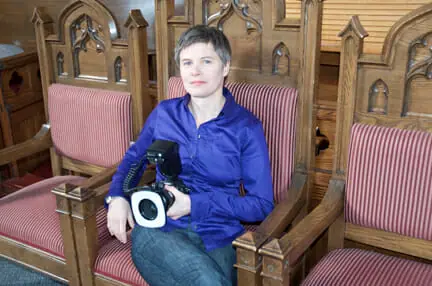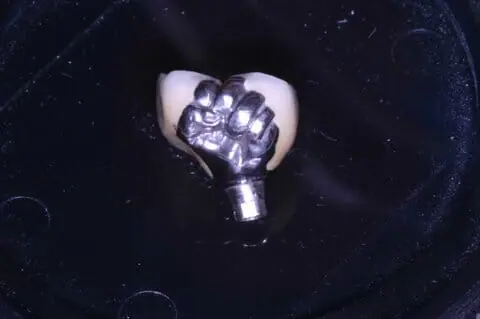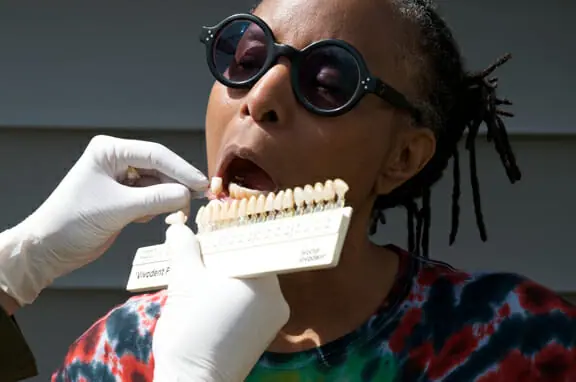I was captivated by a story that appeared in the media last March about a Nova Scotia man who was stoked to buy dentures with winnings from his $675,000 lottery prize jackpot.
“Yep, I went right out and got a new set of false teeth,” said James Hanlon, 60, in a recent phone interview. “I’d been completely toothless for 17 years.”
Hanlon attributed the loss of his teeth to a severe case of periodontal, or gum, disease. “The dentures have made a big difference,” he said.
As someone who has spent countless hours at the business end of a dentist’s drill, I was heartened by Hanlon’s commitment to improve his oral health. Indeed, my most recent dental odyssey coincided with the scandal that turned a global spotlight on the Dalhousie University Dental School.
In the aftermath of the controversy that led, last year, to disciplinary action against a group of male Dal dental students for alleged sexist and misogynist behaviour, I’ve found myself reflecting on my experiences with a school staffer that has given me special pride in my pearly whites.
The backstory: Winter 2012 found me in need of a dentist. Then new to Nova Scotia, I secured an appointment at the Dal dental school clinic that offers, as officials note, “care at a reduced rate compared to general dentists in the area.”
After an initial exam and x-rays, a faculty-supervised, final-year student replaced a large filling in a bottom molar. Unfortunately, the restoration soon failed.
Tooth tender (but tolerable), I attended a party, in early 2013. There, I noticed a woman who, in her quiet demeanour, stood in stark contrast to a lively crowd that included a guest in a clown suit and neon green Afro wig.
Drawn by the woman’s calm remove, I introduced myself. Her name? Alison Tuton. Occupation? Registered dental technician. Call it kismet.
A 1997 graduate of the since discontinued dental tech program at the Nova Scotia Institute of Technology (now part of the Nova Scotia Community College system), Tuton joined the profession by chance. She was employed at a Kentville fitness centre when she met a woman whose jewelry caught her eye.
“She was wearing a striking gold ring and I asked her about it,” Tuton recalled. “She said she’d created it herself, as a dental technician.”
Tuton continued: “I didn’t even know what that was. So, the woman explained that she made teeth by using much of the same equipment, materials and procedures as goldsmithing. I wanted to become one right away.”
Tuton’s application to the highly competitive dental tech program included tests that evaluated her artistic skills and manual dexterity. The former star goalie for the Acadia University women’s soccer team aced both and completed the two-year program in the construction and restoration of dental appliances such as crowns, bridges, implants and dentures.
Tuton later apprenticed with Martin Mueller, owner of Mueller’s Dental Arts Laboratory in Bedford. A member of the Dal dental technician staff for the past four years, she also does private work.
Encouraged by Tuton, I consulted other dentists about my ailing molar, including a Halifax endodontist who performed an ineffective root canal. Eight months after my first visit to the Dal dental clinic, I was poised for an extraction. My spirits tanked.
Research shows that the emotional impact of losing teeth is sorely underrated. A study in The British Dental Journal (May 2000) revealed that tooth loss often prompts reactions such as grief, shame, secrecy, concerns about appearance, and premature ageing.
“The researchers were surprised at the depth of [negative] feeling that existed among the participants…as they were all coping apparently well,” the study noted.
As one who’d been diligent (if not obsessive) about my dental hygiene, I was especially dismayed by the prospect of losing a tooth. Like Hanlon, I’d once suffered an extreme case of periodontal disease. Then in my mid-twenties, I was diagnosed while working in Denmark. Luckily, a colleague directed me to the local Arhus University School of Dentistry where I underwent a series of treatments— including a bovine bone graft — that strengthened my gums and saved my teeth. For 40 years, I’d kept my teeth intact. Now a molar was biting the dust.
Ever supportive, Tuton suggested that I meet with Dr. Andrew Nette, who practices in Wolfville. The distinguished Dal dental school graduate extracted my tooth and, over the course of a year, prepared me for an implant, or fixed dental device.
Several months before my final appointment, Tuton arrived at my home with an array of her lab tools, so I understood that she was collaborating with Nette. But I was gobsmacked by the object that she presented to him in a blue velvet ring case on my official “implant day.”
The gleaming porcelain molar that she’d handcrafted featured an enduring symbol of the Black liberation movement—a raised fist. Popularized during the 1960s, the fist salute was widely used, by activists, to express strength and to protest social injustice. As a Black woman who came of age during the era, I’d proffered the salute many times.
Wowed, Dr. Nette immediately photographed the dental device that he later declared “the most impressive” he’d seen in his 39-year career. Tuton had not previously shown him her unconventional design.
“Alison strives for a level of excellence that is rare,” Nette said. “She has a fantastic eye, is fastidious, and most all, unlike the big dental labs, she takes the time to get it right. It’s amazing to achieve that kind of detail on such a small space. Her work is flawless.”
Martin Mueller agreed. “Our trade is multi-disciplinary and demands a specific constellation of skills to succeed,” he said. “Alison has artistic instincts, good hands, the ability to see options and to solve problems. I feel honoured to have been her mentor.”
Mueller lamented the demise of the dental tech program in Halifax. “It was the only one in the Maritimes,” Mueller said. “Now the nearest programs are in Quebec or Ontario. It’s difficult to find local people, like Alison, who could flourish in the field.”
About her inspiration for the molar, Tuton said she hoped the design might lessen my despair about losing a tooth.
“I was thinking that the fist would give you a sense of empowerment,” she explained. “Along with physical pain, I know that dental problems can be tough, mentally.”
She continued: “I love helping to complete a patient’s smile, giving them confidence, and helping them to masticate properly. As a technician, I work behind the scenes and have a different role than the dentist. Most of the things that I create or restore are never noticed. And that’s just fine by me.”
Now permanently affixed inside my mouth, Tuton’s work is not readily visible, but I know it’s there.
Set against the backdrop of African heritage month, Beyonce’s magnificent Superbowl nod to the Black Panther Party, and social justice efforts on the Dal campus, and elsewhere, the fist molar resounds, for me, with an ebullient cry of the 1960s: “Right on! Be Free.”
The author of Alice Walker: A Life, Evelyn C. White is a freelance writer in Halifax.





Recent Comments